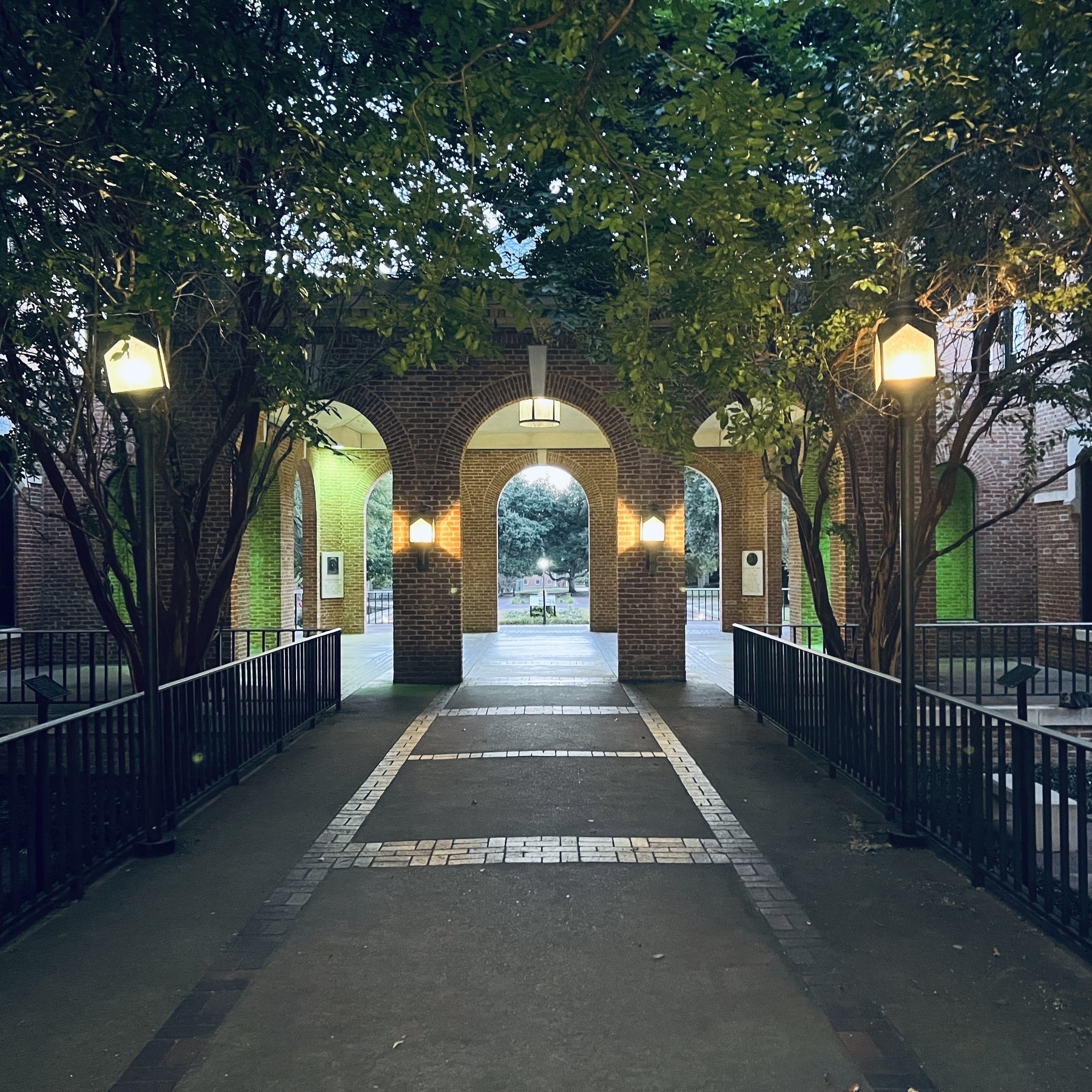Not everyone is interested in the Oxyrhynchus papyri — IYKYK — but for those who are, this article by Candida Moss is an excellent summary of recent work by my friend and colleague Jeff Fish and his collaborators. Also: commentary by Brent Nongbri.
When Paul Schrader was asked to do a Criterion Collection Top 10, he gave a great response: “As a longtime cinephile I’m familiar with most of the Criterion catalogue. Rather than select ten favorites I’ll choose ten films that I was able to see because of Criterion, films I previously did not know about or were not available.”
I haven’t really used Twitter for several years, but now I’m deleting my account.
x nay
I’ve deactivated my X account and won’t be coming back. I’ve despised Twitter for several years, but I have been willing to keep the account active in order to promote the journals and publishers I write for — my own writing and that of others. But I’m done with that. Why?
- X is now owned by one man.
- That one man doesn't just tolerate but promotes straightforwardly antisemitic discourse — he’s increasingly open about his own hostility towards Jews, and is ready to sue people who criticize him for it.
- That one man also — and let’s think about the merits of a system that grants to one private citizen this power — intervened meaningfully in the Russia-Ukraine war on the side of the aggressor. We could debate whether, and to what extent, the U.S. should directly support Ukraine, but there is no question about who invaded whom, and Musk is directly aiding the invaders.
I don’t see how, in the circumstances, I can keep an account on that man’s platform. So I’m out, for good.
UPDATE: See also this by David French: “Twitter isn’t so much a free speech paradise as the generalissimo’s playpen, and the generalissimo’s values shape everything about the place.”
UPDATE 2: Turns out that Musk did not cut off Starlink service to Ukraine in Crimea: it was already deactivated, and Musk declined to activate it in response to a request from the Ukrainian government. Walter Isaacson, in his biography, got that wrong, and has admitted it. A pretty significant error.
Joseph Horowitz: “So unnoticed are the American arts that a major American historian, Jill Lepore, can produce a wonderfully readable 900-page historical overview — These Truths: A History of the United States (2018) — without devoting so much as a sentence to the arts. No one could possibly dispute her emphasis on present-day issues and needs — the urgency of pondering American race relations and inequality. But it does not follow that there should be no consideration of Walt Whitman or Herman Melville, Emily Dickinson or William Faulkner, Charles Ives or George Gershwin, Duke Ellington or Billie Holiday.”
We see so many tributes when great artists die, but we should do a better job of praising them while they’re still around. So let’s acknowledge a home truth: there ain’t nobody who can sing like Gladys Knight.
Ronald W. Dworkin: “AI without the ballast of intuition represents the tyranny of pure analysis.”
mechanical writing
A university professor friend of mine recently confessed that everyone in their department now outsources their letter-of-reference writing to ChatGPT. They feed the chatbot a few bullet points and it spits out a letter, which they lightly edit and sign.
Naturally enough, this is slowly but surely leading to a rise in the number of reference letters they’re asked to write. When a student knows that writing the letter is the work of a few seconds, they’re more willing to ask, and a prof is more willing to say yes (or rather, they feel more awkward about saying no).
The next step is obvious: as letters of reference proliferate, people who receive these letters will ask a chatbot to summarize them in a few bullet points, creating a lossy process where a few bullet points are inflated into pages of puffery by a bot, then deflated back to bullet points by another one.
But whatever signal remains after that process has run, it will lack one element: the signal that this letter was costly to produce, and therefore worthy of taking into consideration merely on that basis.
See this post by me.
I must admit that I hadn’t thought of this particular use of AI, but it raises an interesting question: When do we turn to AI for help with writing? — especially those of us who are competent writers? We don’t do it for every writing task, only for some — but which ones?
Here’s my hypothesis: Competent writers seek help from AI when they’re faced with
- an obligation to write, in situations in which
- certain phrasal formulas are expected, and
- any stylistic vividness is useless or even unwelcome.
Why write as a human being when humanity is a barrier to data processing?
Oh boy am I excited about what Robin Sloan is up to.
Mary Harrington on Burning Man is, well, 🔥: “All this gift-economy joy is enabled by participation in the regular cut-throat capitalist one. And enjoying it at all is predicated on having enough surplus resource in your life that you can afford to blow at least a few grand on contributing to a colossal, ephemeral simulacrum of no longer needing money at all…. It is, in other words, very much a Marie Antoinette toy farm.”
Dr. Drang: “[Judge Scott] McAfee is asking [DA Fani] Willis to make these estimates for a single trial, 19 separate trials, and every possibility in between. Since this is an impossible task because of the monstrous number of trial combinations, we don’t take him at face value. But what if we did? How many different ways could this case be split into separate trials?”
A lovely song and a beautiful video of the live performance: Peter Broderick & Ensemble 0 - Give It to the Sky
some thoughts on habitus
For quite some time I haven’t been posting here about focal practices, but I’ve been thinking about them. I’m going to share some of those thoughts now, in a discursive, associative, Adam-Robertsy kind of way.
Let’s start by looking at a passage from Jacques Maritain’s 1920 book Art and Scholasticism:
There is … a fundamental incompatibility between habitus and egalitarianism. The modern world has a horror of habitus, whatever ones they may be, and one could write a very strange History of the Progressive Expulsion of Habitus by Modern Civilization. This history would go back quite far into the past. We would see – “a fish always rots by the head first” – theologians like Scotus, then Occam, and even Suarez, ill-treat, to begin with, the most aristocratic of these strange beings, namely the gifts of the Holy Spirit – not to mention the infused moral virtues. Soon the theological virtues and sanctifying grace will be filed and planed away by Luther, then by the Cartesian theologians. Meanwhile, natural habitus have their turn; Descartes, with his passion for levelling, attacks even the genus generalissimum to which the wretches belong, and denies the real existence of qualities and accidents. The whole world at the time is agog with excitement over calculating machines; everybody dreams only of method. And Descartes conceives method as an infallible and easy means of bringing to the truth “those who have not studied” and society people. Leibniz finally invents a logic and a language whose most wonderful characteristic is that it dispenses from thinking. And then comes the taste, the charming curiosity, the spiritual acephaly of the Enlightenment.
Thus method or rules, regarded as an ensemble of formulas and processes that work of themselves and serve the mind as orthopedic and mechanical armature, tend everywhere in the modern world to replace habitus, because method is for all whereas habitus are only for some. Now it cannot be admitted that access to the highest activities depend on a virtue that some possess and others do not; consequently beautiful things must be made easy.
If we’re going to grasp what Maritain says here, we’ll need some context for this passage. Early in his argument, Maritain makes a distinction between the speculative order – which requires virtues directed towards one end: knowledge – and the practical order – which sometimes requires other virtues. He then argues that “the practical order itself is divided into two entirely distinct spheres, which the ancients called the sphere of Doing (agibile, prakton) and the sphere of Making (factibile, poiêton).”
In his next chapter, on “Art as an Intellectual Virtue,” Maritain gets to the point that I am especially interested in here:
The ancients termed habitus (hexis) qualities of a class apart, qualities which are essentially stable dispositions perfecting in the line of its own nature the subject in which they exist. Health, beauty are habitus of the body; sanctifying grace is a habitus (supernatural) of the soul. Other habitus have for their subject the faculties or powers of the soul, and as the nature of these faculties or powers is to tend to action, the habitus which inhere in them perfect them in their very dynamism, are operative habitus: such are the intellectual virtues and the moral virtues.
The Wikipedia page on this complicated word habitus is quite useful. It rightly points out that contemporary use of the term is almost wholly due to the influence of Pierre Bourdieu, and adds that Bourdieu seems to have used the term for the first time in writing about Erwin Panofsky’s 1951 book Gothic Architecture and Scholasticism, which he translated. Here’s a key passage from his “postface” to that translation:
Mais en outre, en employant pour désigner la culture inculquée par l’école le concept scolastique d’habitus, M. Erwin Panofsky fait voir que la culture n’est pas seulement un code commun, ni même un répertoire commun de réponses à des problèmes, ou un lot de schémas de pensée particuliers et particularisés, mais plutôt un ensemble de schèmes fondamentaux, préalablement assimilés, à partir desquels s’engendrent, selon un art de l’invention analogue à celui de l’écriture musicale, une infinité de schémas particuliers, directement appliqués à des situations particulières.
My translation:
Moreover, by employing the scholastic concept of habitus to describe the culture inculcated by the medieval Schools, Panofsky shows that culture is not merely a common code, or a common repertoire of answers to problems, or a set of particular and particularized schemes of thought, but rather a set of fundamental schemes, assimilated beforehand, from which are generated – through an art of invention analogous to that of musical composition – an infinite number of particular schemes that can be directly applied to particular situations.
Panofsky’s book doesn’t use the word habitus but rather the phrase “mental habit”; also, Panofsky never mentions Maritain, even though some of his comments on “mental habit” seem to be drawing on connections between moral/spiritual formation and artistic practice that (I believe) Maritain first made. For example:
During the “concentrated” phase of this astonishingly synchronous development, viz., in the period between about 1130–40 and about 1270, we can observe, it seems to me, a connection between Gothic art and Scholasticism which is more concrete than a mere “parallelism” and yet more general than those individual (and very important) “influences” which are inevitably exerted on painters, sculptors, or architects by erudite advisers. In contrast to a mere parallelism, the connection which I have in mind is a genuine cause-and-effect relation; but in contrast to an individual influence, this cause-and-effect relation comes about by diffusion rather than by direct impact. It comes about by the spreading of what may be called, for want of a better term, a mental habit — reducing this overworked cliché to its precise Scholastic sense as a “principle that regulates the act,” principium importans ordinem ad actum. Such mental habits are at work in all and every civilization.
The sentence I quoted from Bourdieu’s Postface to his translation of Panofsky is a kind of expansion of this passage, an unpacking of its implications. Maybe Bourdieu hadn’t read Maritain, but, like Panofsky, he sure sounds like someone who has. Bourdieu unpacks further in his book The Logic of Practice:
The conditionings associated with a particular class of conditions of existence produce habitus, systems of durable, transposable dispositions, structured structures predisposed to function as structuring structures, that is, as principles which generate and organize practices and representations that can be objectively adapted to their outcomes without presupposing a conscious aiming at ends or an express mastery of the operations necessary in order to attain them. Objectively ‘regulated’ and ‘regular’ without being in any way the product of obedience to rules, they can be collectively orchestrated without being the product of the organizing action of a conductor.
Okay. So where are we?
- The medieval schools were strongly formative institutions: through their commitment to certain spiritual and moral practices – prayer, memorization, contemplation, withdrawals and constraints of various kinds – they formed in their members certain strong dispositions of attitude and behavior.
- This is not a matter of making people follow rules; indeed, a rule-based order relies upon a debased or degraded model of shaping human behavior, and in the end can, as Charles Taylor has written, do nothing more or other than inculcate “code fetishism” or “normolatry.”
- If instead of articulating and enforcing rules, institutions emphasize being formed by certain ongoing disciplined practices, then a genuine habitus can emerge. And one way to know that someone exhibits genuine habitus is to see in him or her what Bourdieu calls “transposable dispositions”: that is, we’ll see a thematic consistency in that person across various contexts. If a person behaves one way at work and a wholly different way at home, or one way in person and a wholly different way online, then we have good reason to suspect that that person has failed to develop a genuine habitus and is at best following certain rules. (I feel seen.)
- As Lauren Winner has shown, practices, however necessary, are dangerous.
- Nevertheless, habitus is a step towards having something to do rather than a merely a set of responses to stimuli.
All this deserves further reflection.
Victor Mair: “As the creatively piquant online nicknames [for Xi Jinping] of yesteryear—including such classics as Winnie the Pooh, Steamed Bun Xi, Foreskin Xi, and Xissolini—are censored and fall into disuse, they are replaced by ever more abstruse symbols and esoteric references.”
Heads up: I don’t believe my micro.blog weekly digest is working, and I don’t know whether it will work in the future. I don’t want to go back to the previous newsletter – doing it from micro.blog is more convenient – but I will if I have to. I’ll report on any changes here.
I love seeing this tribute to the translator Edith Grossman, whose version of Don Quixote is by miles the best, but she gets too much credit here for her work on Gabriel Garcia Marquez. It was the incomparable Gregory Rabassa whose translation of One Hundred Years of Solitude brought El Boom to English-language readers. Garcia Marquez called Rabassa “the best Latin American writer in the English language.”


